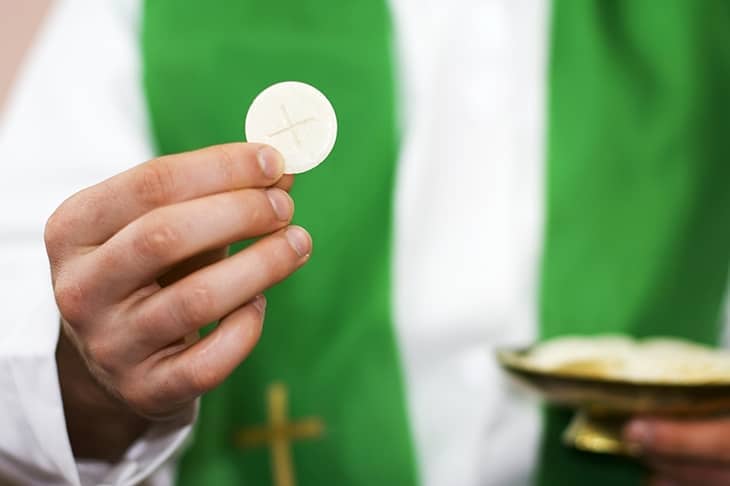The Bull of Oman
Sir: There was one significant omission in the cast of characters mentioned by Charles Moore in his notes on the Sultan of Oman’s armed forces (Notes, 19 February): General Sir Timothy Creasey KCB . The omission is all the more surprising given the key role Margaret Thatcher played in getting General Tim to take up the Sultan’s invitation to go back out to Oman as deputy commander in chief and chief of defence staff.
Having been instrumental in achieving a satisfactory resolution of the insurrection in Dhofar as a senior loan service officer, General Tim was highly regarded by the Sultan but he was not keen to take up the offer of direct employment. His return was seen as both a favour to a friendly head of state and important in maintaining British influence. Mrs. Thatcher therefore allowed terms of employment which enabled Sir Tim to be re-engaged in the British army weeks after his retirement on terms so favourable that questions were asked in the House, and serve His Majesty on loan service.
As a former contact officer in Oman, serving with both Baluch and Omani regiments, I am proud of the role I and other British officers were able to play in assisting Sultan Qaboos in the development of the Omani nation into a progressive modern state. However, although there is much to be proud of, there are many murky pools — it is a shame that no comprehensive history of Britain’s role in Oman was written while the main actors were still alive, but it is perhaps not entirely surprising.
I met with General Tim when I was on leave from Oman not long before his death, and was able to report to him on the sound health of a prize bull he had gifted to the Sultan — the Sultan’s nickname for General Tim was the Bull. The gift another example, perhaps, of ‘soft influence’.
Bob O’Dwyer
London SW4
Intinction rebellion
Sir: While I have sympathy with those who are still wary of receiving the shared chalice at Holy Communion, Richard Kay’s commending of intinction (Letters, 19 February) is misplaced. The practice is fraught with risk — not of the Covid kind — but of the accidental transfer of Precious Blood to clothing. The rubrics of the Book of Common Prayer require the celebrant to reverently eat and drink all of the unconsumed consecrated elements. Eating a shirt or a blouse is not ideal. The true solution is to be found in Section 8 of the Sacrament Act 1547, which requires communion to be delivered and ministered unto the people in both kinds ‘except necessity otherwise require’. With the pandemic-created necessity now fading away, parishes should return to the common cup as the only proper means of administering Holy Communion.
Edward Dobson
Churchwarden and Parish Clerk, Church of Our Most Holy Redeemer, London
Prerequisite for peace
Sir: Setting aside his ad personam attack, Charles Moore (Notes, 19 February) misses my point. Margaret Thatcher’s 1985 message to Gorbachev (who at the time was just another totalitarian Soviet boss — the reforms came later) was a characteristically perceptive recognition that peace in Europe depends on all its major powers feeling reasonably secure. Thus, the peace settlements of 1815 and 1945, by avoiding humiliation and exclusion of the defeated, produced decades of peace. 1918 by contrast gave us Hitler. Russia’s Cold War defeat of 1991 has, partly through western misjudgments, brought us Putin. I’m sure that Thatcher, now as in 1985, would have argued that some acknowledgement of Russia’s security concerns would help set our continent on a less conflictual track. Indeed, didn’t her hero, Churchill, promote ‘in victory, magnanimity’?
Tony Brenton
Cambridge
Necessary internment
Sir: Tessa Dunlop may think that our internment of Germans and Austrians during the second world war was an ‘injustice’ (Books, 12 February) but it was a policy born of desperation: Britain could take no risks. My tutor at Sussex University 50 years ago was the art historian Hans Hess. A Jew and a communist, he was not a likely stooge or agent for Hitler; yet he described his internment as ‘a necessity’. ‘I posed no threat but you couldn’t make exceptions, or risk the provocation of my wandering free in Hampstead while Englishmen died at Dunkirk.’
Nicholas A. Bird
London W3
Keep it dark
Sir: Andrew Watts is very shortsighted. Allow medics their gallows humour, but not the police (‘Sick jokes’, 19 February)? Medics are unlikely to face violent thugs, stroppy drunks, accusations of racism — one could go on — which the police face every day. If anyone needs gallows humour there are several contenders before doctors. Who even gives a thought, for instance, to the feelings of prison warders?
W.G. Sellwood
Derrington, Staffs
Silage may vary
Sir: As an agricultural ‘anorak’, I feel duty-bound to offer a correction to Melissa Kite (Real life, 12 February) as she compiles her farming pitch for the reality TV producer. She propagates a common myth about silage, that it is some sort of odorous waste material. That would be slurry — perhaps delicately explained as the by-product of in-cow silage processing.
Silage itself is pickled grass: think of it as a cross between sauerkraut and kombucha, but for cows. While Bottom may have extolled the virtues of ‘Good hay, sweet hay’ in A Midsummer Night’s Dream, today most of the UK’s summer grass is preserved as silage. Made well, it carries a slightly sweet smell but is largely odourless: that’s the way the cows like it.
Adrian Bell
Marlborough, Wilts






Comments